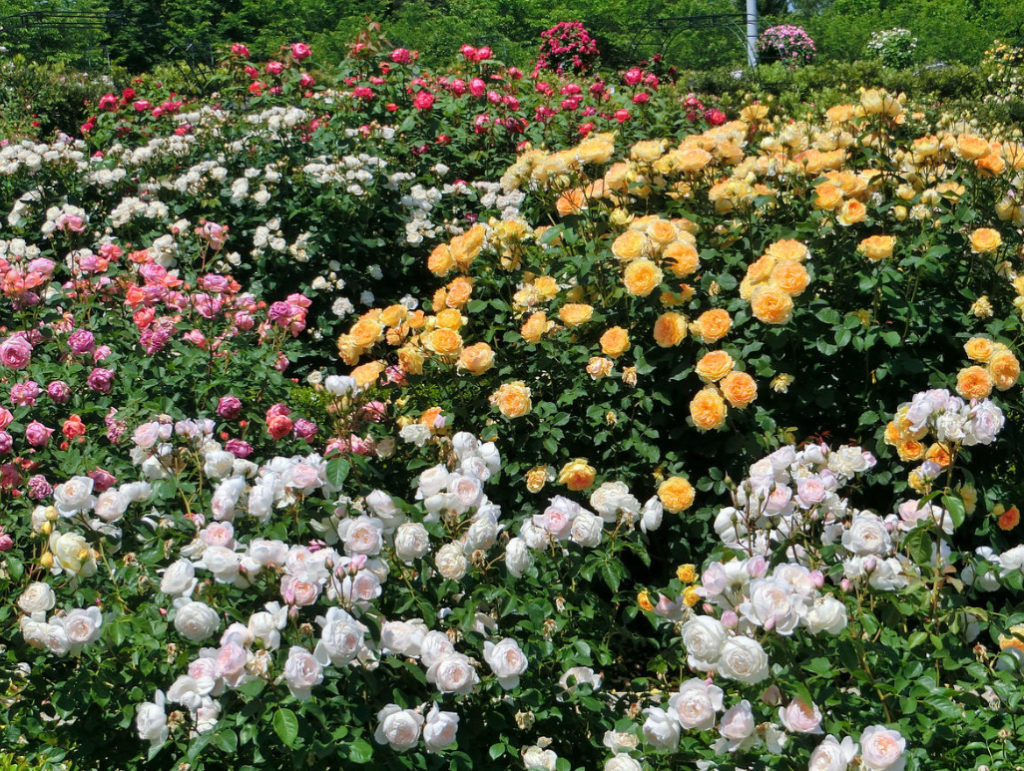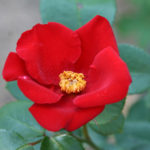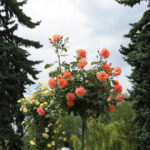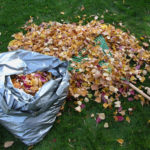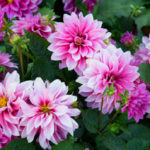An experienced gardener begins to prepare roses for winter in the summer, without waiting for the onset of autumn days. Only a healthy and strong rose without problems will endure the cold. That is why it is so important to understand the characteristics of the plant and give it the care it really needs in the summer. Over the years, passion for roses, I brought for myself a set of agrotechnical rules, some of them are contrary to the generally accepted, but they are all proven and effective. So, what will rose thank you for?
First of all, rose will thank you for the correct landing place. It needs a lot of sunlight. Take the rose garden well-lit area, because even in partial shading roses grow weak and bloom poorly. And landing in full shadow is out of the question.
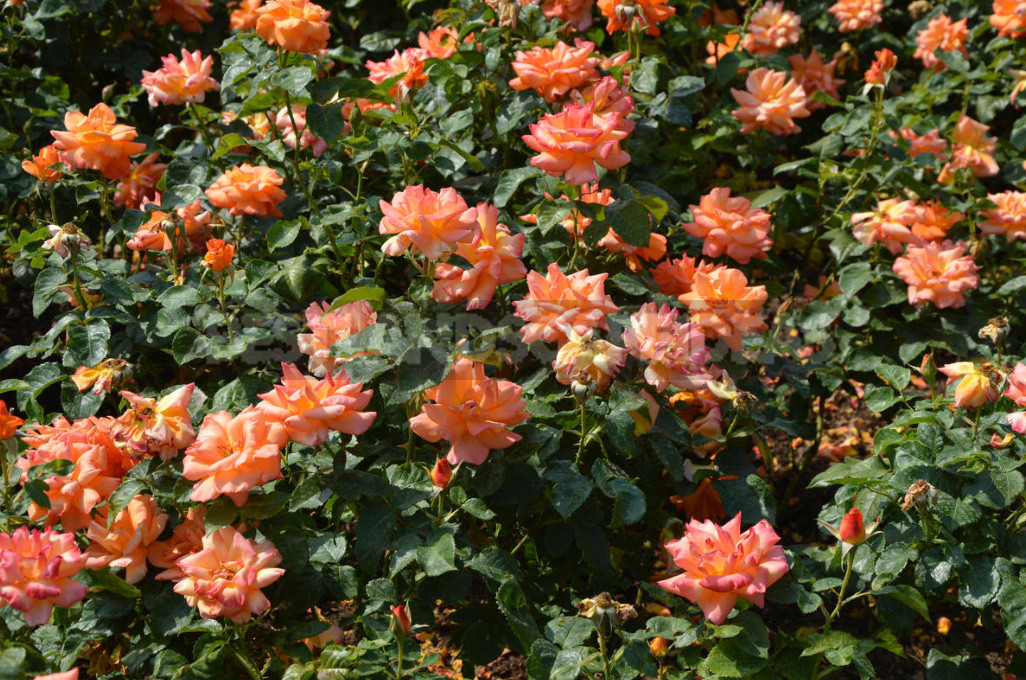
In the Northern climate, it is not necessary to plant roses close to each other. In poorly ventilated, dense plantings they are more likely to get sick with powdery mildew and black spots. Let each grow separately, getting the maximum of everything that it should. Also, do not forget to remove bad overwintered shoots that the plant does not need and only thicken the bushes.
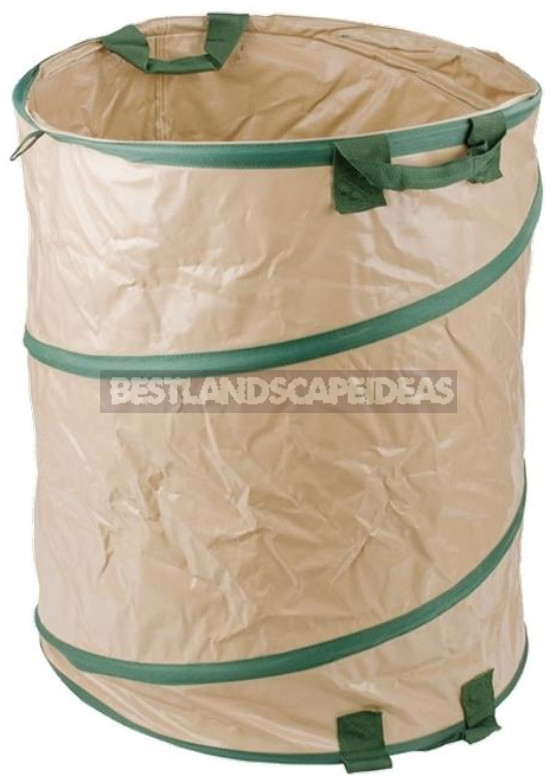
Lightweight folding container-the perfect helper in bringing cleanliness to your rose garden. It is great for collecting removed shoots, trimmed inflorescences and small debris left over from seasonal pruning of roses
My approach to feeding roses
I firmly believe that once again roses do not need to feed! I know from personal experience that by diligently fertilizing plants, you only harm them. Manure, compost, bone meal and trace elements introduced when planting in the pit, enough rose for a year. And subsequent fertilizing lead to the fact that the plant “fattens”, blooms worse. All this is not the best way to affect its readiness for the winter cold.
At the time, I completely abandoned the summer fertilizing, because they only stimulate the growth of new shoots and re — flowering-and in fact in a short Northern summer rose does not have time to complete it properly, and you have to cut off the caps of half-blossomed flowers on the first snow. This power plant does not add. Appeared after summer feeding young shoots rose at this time, too, do not need. It will be much better if they grow not by autumn, but at the beginning of next season.
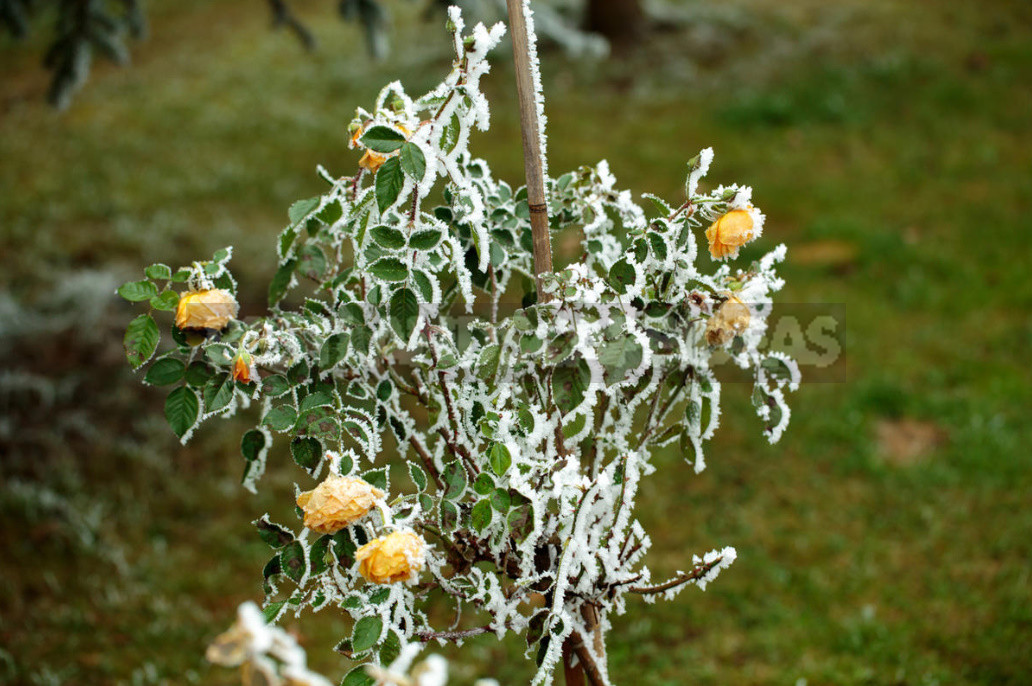
An interesting observation: once blooming roses tolerate winter much better than those that delight us with flowering until late autumn. The explanation is simple — once flowering varieties shoots for winter have time to lignite, they go into hibernation prepared for frost.
I would say more, in your rose garden I refused to even classic spring feeding, which is recommended to be used immediately after radical pruning, since the introduction of nutrients at this time of year stimulates the regrowth of new shoots. For years, instead, I’ve mulched the soil under the roses with rotten horse manure. I scatter it under the bushes and distribute an even layer over the entire surface with a rake.
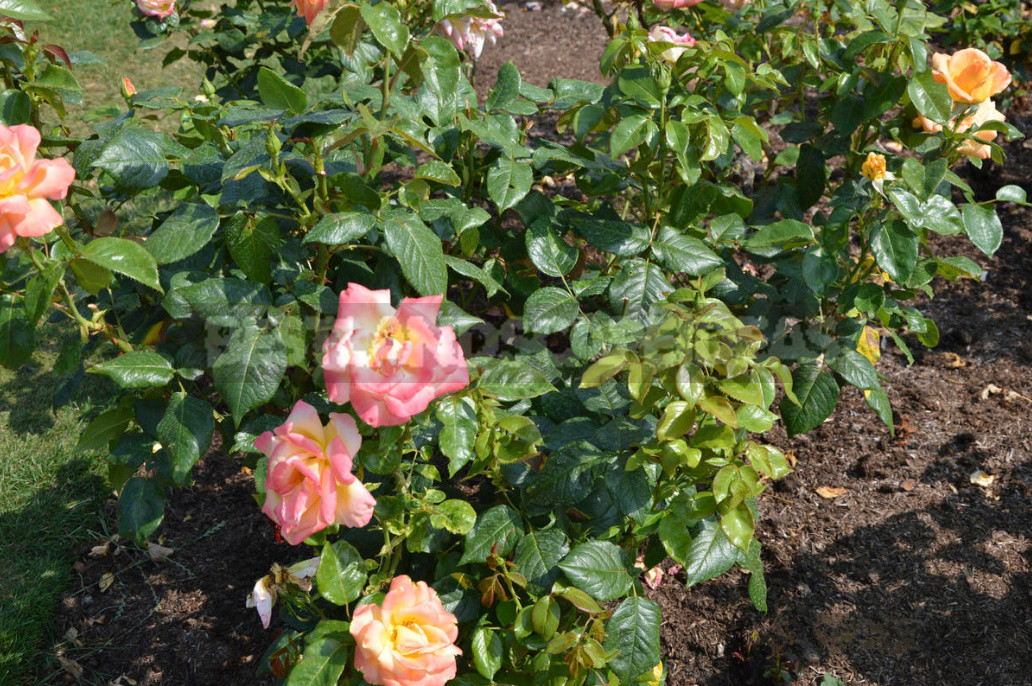
The results of my experiment are simply amazing! Roses grow well and gain green mass. After spring pruning they have powerful new shoots, which bloom in the summer of numerous flowers. Flowering lush and long. And most importantly, my beauties practically do not get sick and delight with healthy glossy foliage!
Watering and its consequences
Another misconception I would like to mention is that roses need regular watering. As something in one smart English book I have read, that this garden culture watering harmful. And as the English are to be trusted more than any other in the care of roses, I took their advice. And the argument was quite convincing: because of its origin (roses — come from arid regions), these plants develop a deep root system to “pump” water from a great depth.
What happens when you water a rose garden with a watering can or hose? You do not soak the soil so that the moisture reaches the depth where the roots of the rose. As a result, the plant forms adventitious roots near the surface of the earth — where there is more water. It is these roots in the first place in the winter and freeze!
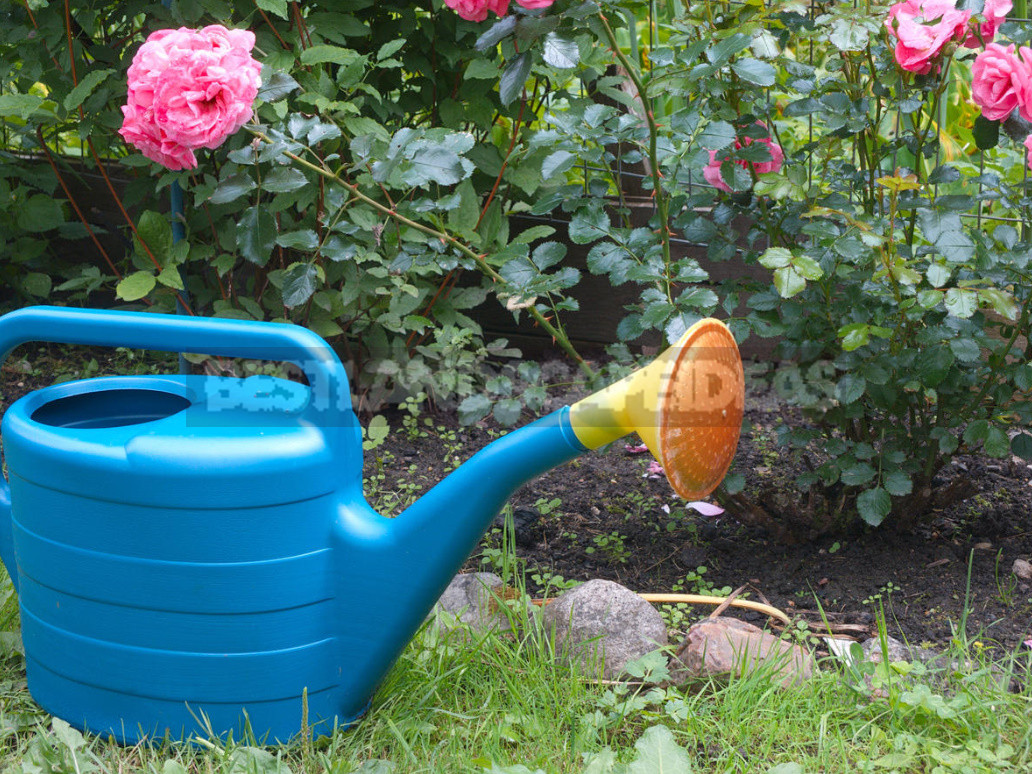
After this discovery I gave up watering my roses altogether. Now I rely solely on precipitation. Confirmation that roses – the most real drought-resistant plants, is the fact that many of them have leaves covered with a waxy coating that prevents the evaporation of moisture. By the way, the presence of thorns is another evolutionary mechanism of adaptation to arid conditions. This once again confirms the theory of drought resistance roses.
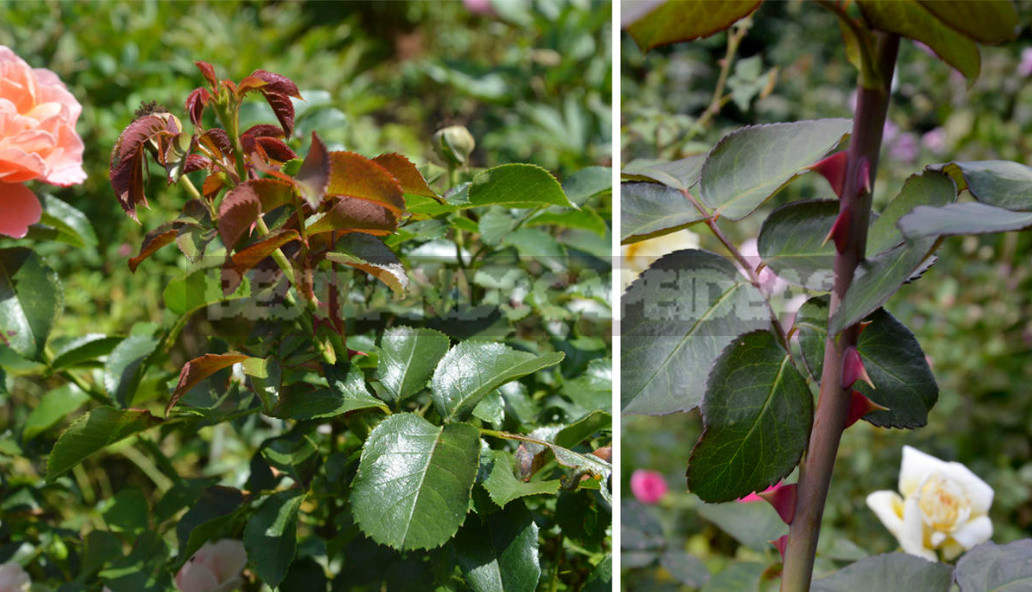
What conclusion can be drawn from the above? The secret of healthy and beautiful roses is not to pamper them with watering and not to fatten fertilizers. Let them grow in Spartan conditions-only they will be healthier! Show your love for them not in excessive care, but in admiration of their beauty.
Rose’s health above all else
However, Spartan conditions do not abolish the prevention of diseases, which still need to be carried out. It is especially necessary in the wet cool summer, when the risk of disease increases. Is prevention helps you to keep the foliage healthy, and is a decisive factor in the summer preparing roses for winter.
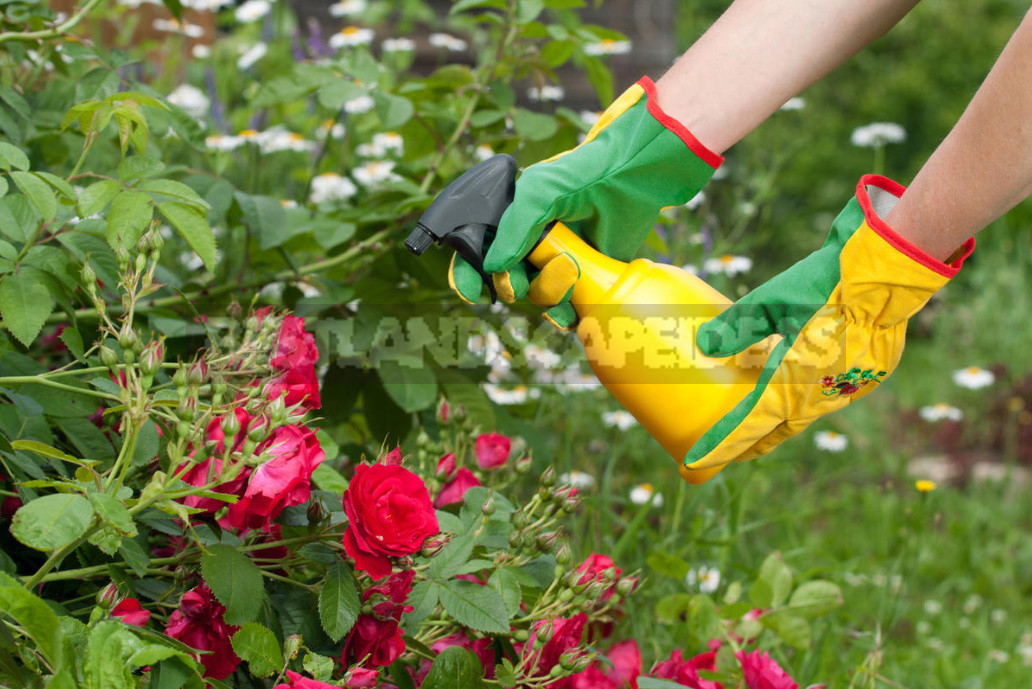
Cold August and September nights, differences in day and night temperatures, fogs and excessive dampness often provoke outbreaks of disease. At this time, roses can hit the black spot and powdery mildew. At the first symptoms that appear, you need to tear and burn all infected leaves. Then you will need treatment with a special drug. Neglect spraying is not necessary, because only a healthy plant is able to survive the harsh winter cold.
So the summer passes in the hassle of roses, although, I must admit, with the change in approach to agricultural technology, I have a little less work. With the end of the summer care of garden beauties do not end.
